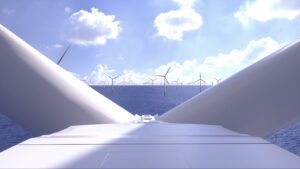The Australian Renewable Energy Agency has opened a new $70 million hydrogen funding round for applications that the agency hopes will fast track the establishment of a globally competitive hydrogen industry in Australia.
ARENA’s Renewable Hydrogen Deployment Funding Round will target support towards the deployment of new large-scale electrolysers, that produce hydrogen from water using electricity.
ARENA will look for projects deploying electrolysers with a capacity of at least 5MW, with a preference for 10MW or larger, representing some of the largest electrolysers in the world.
All electrolysers receiving ARENA support will be required to source electricity from renewable sources, either directly, or through a power purchase agreement or the purchase of large-scale renewable energy certificates.
“With this significant investment we expect to take the sector to the next level. We’ve supported a range of feasibility studies and pilot projects over the past two years, but now we need to start the journey of producing hydrogen at scale,” ARENA CEO Darren Miller said.
ARENA has opened the fund to expressions of interest for large-scale renewable hydrogen projects, including across a range of industries and end-uses, saying that the hydrogen projects that ARENA has previously supported identified a “significant commercial gap” and that the new funding round will help lower hydrogen production costs.
“To take advantage of hydrogen’s potential, we need to increase the scale and reduce the costs of electrolyser installations in Australia. Through this round, ARENA aims to share knowledge on technical and commercial parameters for commercial-scale renewable hydrogen production for domestic and international markets,” Miller added.
As hydrogen has the potential to be produced using electrolysers powered by supplies of renewable energy sources like wind and solar, it has the potential to serve as a storable, zero-emissions source of energy.
With ample supplies of high-quality wind and solar resources, as well as established connections to the global energy export market, many see Australia as having the potential to emerge as a world-leader as a global renewable hydrogen supplier.
A 2019 report from Deloitte forecast that a hydrogen industry could contribute as much as $26 billion to Australian GDP and support up to 16,900 jobs by 2050.
“Australia is well placed to become a major renewable hydrogen producer and exporter. We are blessed with some of the world’s best wind and solar resources, a large sparsely populated landmass, and as a major energy and resources exporter, we are already an experienced and trusted trading partner for countries like Japan and South Korea that will be the future hydrogen importers,” Miller added.
Emerging technologies are growing the scope of uses for renewable hydrogen including use in energy storage for the electricity sector, as a replacement transport fuel and as an alternative source of heat for energy-intensive industrial processes.
Several major European steel manufacturers have commenced trials of the use of hydrogen in steel production, and federal energy and emissions reduction minister Angus Taylor said that the ARENA funding would be key to unlocking Australia’s ability to supply these industries with renewable hydrogen.
“Despite the very significant benefits that can come from hydrogen, it is not yet economic for large scale deployment in our energy systems. This $70 million funding round will help demonstrate the technical and commercial viability of hydrogen production at a large-scale using electrolysis,” federal energy minister Angus Taylor said.
The funding round builds off a commitment that Taylor outlined in a speech given to a CEDA event in Sydney last year, which included a goal to achieve hydrogen production at below $2 per kilogram and raised the potential that funding could be steered towards the production of hydrogen using coal and gas, paired with carbon capture and storage.
“The Government has set an economic goal for hydrogen of ‘H2 under 2’ – that is hydrogen at or under $2 per kilogram. That’s the point where hydrogen becomes competitive with alternatives in large-scale deployment across our energy systems,” Taylor added.
“Getting costs down will be key to establishing Australia as a world leader in the hydrogen sector through both domestic uses, such as blending hydrogen into local gas networks and heavy-vehicle transport use, to exporting Australian-made hydrogen to our key trading partners, like Japan and Korea.”
The $70 million ARENA funding round, which will consist mainly of grant funding, will work alongside an additional $300 million commitment from the Clean Energy Finance Corporation to provide direct investment support in new ventures.
Both commitments have followed the adoption of the National Hydrogen Strategy, as prepared by chief scientist Dr Alan Finkel, by the COAG Energy Council towards the end of last year.
ARENA has previously provided more than $55 million in grant funding to support the development and demonstration of new hydrogen technologies, including a $15 million power-to-gas demonstration project with gas supplier Jemena.
ARENA expects to invite a shortlist of potential projects to make full applications for funding later in 2020 and will aim to have final funding agreements in place before the end of the year.
RenewEconomy and its sister sites One Step Off The Grid and The Driven will continue to publish throughout the Covid-19 crisis, posting good news about technology and project development, and holding government, regulators and business to account. But as the conference market evaporates, and some advertisers pull in their budgets, readers can help by making a voluntary donation here to help ensure we can continue to offer the service free of charge and to as wide an audience as possible. Thankyou for your support.








